Market Fit Product Guide: Unlock Success in 2025


Unlocking market fit product is the single most important factor for B2B SaaS success in 2025. The rules are changing fast. AI innovation and Agentic Automation are transforming how companies understand, reach, and serve enterprise buyers. Founders and GTM leaders can no longer rely on just having a great solution.
Today, a market fit product is about more than features. It is the result of aligning product, marketing, and sales into one powerful growth engine. The winners will be those who use new frameworks, data-driven strategies, and unified go-to-market execution to drive measurable business outcomes.
In this guide, you will find:
- Proven steps to achieve and measure market fit.
- The latest trends, including Agentic AI reshaping user adoption.
- Common pitfalls and how to avoid them.
- Real-world examples and actionable insights for SaaS growth.
Ready to outpace the competition? Read on to discover how your team can unlock market fit product and drive lasting success.
Understanding Market Fit in 2025: Definitions & Trends
Unlocking market fit product success in 2025 means more than just building a solid tool. True alignment happens when your solution meets a strong, validated demand in the market. Marc Andreessen once called it the only thing that matters, while Steve Blank emphasized customer validation as the foundation for any go-to-market strategy.
Over the years, several frameworks have guided B2B SaaS teams toward market fit product excellence. The Business Model Canvas, value proposition mapping, and the 40% rule—where at least 40% of users say they'd be very disappointed without your product—remain vital. Data shows that a 5% monthly churn rate can lead to a 60% annual revenue loss, while top performers maintain LTV:CAC ratios between 2x and 5x.
| Framework/Metric | Purpose | 2025 Relevance |
|---|---|---|
| Business Model Canvas | Visualize product-market alignment | Still foundational |
| Value Proposition Mapping | Clarify customer pain points/solutions | Critical for AI-centric markets |
| 40% Rule | Quantify user dependence/fit | Key SaaS benchmark |
| Churn & LTV:CAC | Measure retention and growth efficiency | Guide sustainable scaling |
In 2025, trends like Agentic AI, evolving enterprise buyer journeys, and the convergence of PLG and SLG are reshaping the path to market fit product breakthroughs. According to Agentic AI in B2B SaaS, these intelligent agents automate workflows, personalize user experiences, and accelerate feedback loops—giving SaaS companies a competitive edge. Take ConvertKit’s founder, who validated real demand with non-scalable tactics, iterating rapidly to find true fit. Today, Agentic Automation is the lever that lets modern teams achieve, measure, and sustain market fit product success.

The Step-by-Step Guide to Achieving Market Fit
Unlocking a market fit product is not a single leap but a journey with clear, actionable steps. Each stage builds on the last, combining deep customer insight, thoughtful product design, and relentless iteration. Let’s break down this process so SaaS founders and GTM leaders can confidently align for growth.

Step 1: Deep Market and Customer Discovery
The first step to achieving a market fit product is understanding who your customers are and what truly drives their decisions. This goes beyond surface demographics.
- Segment target customers using firmographic, technographic, and behavioral data.
- Conduct interviews and “Day in the Life” studies to reveal pain points.
- Identify early adopters who experience urgent, unsolved problems.
- Validate willingness to pay, ensuring the solution fits workflow and budget.
For example, leading SaaS startups often conduct 50+ customer interviews per iteration. This approach uses rapid prototyping and feedback loops, powered by AI tools for segmentation. The more you know your customer, the closer you get to a market fit product.
Step 2: Designing a Minimum Lovable Product (MLP)
After validating the problem, focus on building a solution users love. A market fit product is not just functional, it creates delight and loyalty.
- Prioritize features that drive retention, not just initial adoption.
- Involve early adopters and beta testers in feedback cycles.
- Use Agentic AI to personalize onboarding and automate repetitive tasks.
- Avoid feature bloat by focusing on “must-have” functionality.
B2B AI platforms are now integrating agentic automation to deliver differentiated value. According to Agentic AI in B2B Sales, agentic AI amplifies customer engagement and accelerates product adoption—key for a market fit product. Products with high NPS at launch are twice as likely to achieve lasting fit.
Step 3: Quantitative Validation & Iteration
With your market fit product in users’ hands, turn to hard data. Validation is ongoing.
- Track metrics: 40% rule, churn rate, LTV:CAC, and retention.
- Analyze user behavior: bounce rates, returning visitors, cohort retention.
- Rapidly iterate product and messaging based on real insights, not assumptions.
- Leverage AI-driven analytics to surface trends and opportunities.
For example, one SaaS firm cut churn from 8% to 3% by refining onboarding. Remember, fit is a spectrum. Companies with less than 5% monthly churn and LTV:CAC above 3x are high-fit. Keep pushing for “extreme” market fit product, not just the minimum.
Aligning Product, Marketing, and Sales for Unified Growth
Achieving true market fit product success in B2B SaaS is impossible without tight alignment between product, marketing, and sales teams. When these functions operate as one, they create a single growth engine that drives pipeline and accelerates ARR.
Unified metrics are essential. Replace siloed KPIs with revenue-focused goals, such as pipeline velocity and ARR impact. Build operational dashboards that offer real-time visibility into GTM performance. This transparency fuels faster decision-making and keeps every team focused on the same north star.
Standardized enablement playbooks bridge the gap between teams. Equip everyone with consistent messaging, objection handling guides, and competitive positioning. SaaS companies that integrate these workflows often see over 60% pipeline growth, as silos disappear and execution speeds up.
Agentic AI is transforming the market fit product journey. By automating lead qualification, personalizing outreach, and empowering sales teams, Agentic Automation shortens sales cycles and deepens engagement. For a deeper dive into how Agentic AI is reshaping B2B engagement, explore this Agentic AI in B2B Marketing article.
Industry surveys reveal that organizations with fully aligned GTM functions grow revenue 2.5 times faster. In 2025, making market fit product alignment your core strategy is no longer optional—it is the blueprint for sustainable, measurable SaaS growth.
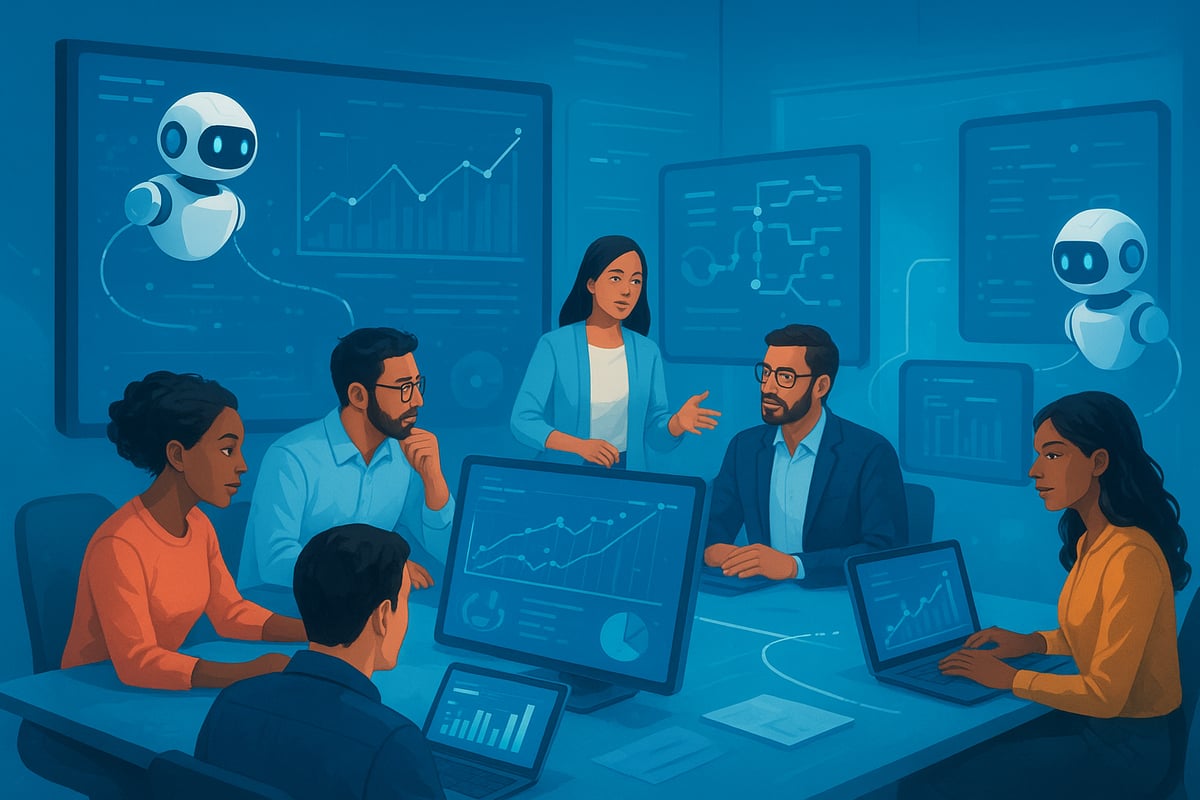
Measuring and Sustaining Market Fit: Metrics, Signals, and Pitfalls
Achieving market fit product is only the beginning; sustaining it requires relentless measurement and adaptation. In the fast-moving world of B2B SaaS, knowing exactly when you have real alignment can be the difference between breakout growth and costly missteps.
| Metric | What It Measures | Benchmarks |
|---|---|---|
| 40% “Very Disappointed” Rule | Product indispensability | >40% |
| Churn Rate | Customer retention | <5% monthly |
| LTV:CAC | Growth efficiency | 2–5x |
| NPS | User advocacy | >50 |
Watch for early warning signs:
- Growth stalls or plateaus
- Churn starts to rise unexpectedly
- User engagement drops in key cohorts
Common pitfalls include scaling before true market fit product is achieved, confusing problem desire with product desire, or iterating endlessly on features instead of customer outcomes.
Consider the SaaS company that saw initial traction, only to realize adoption stalled within its core segment. By analyzing cohort data and listening to customer feedback, the team pivoted its ideal customer profile and reignited growth.
Agentic AI is now revolutionizing how teams track and sustain market fit. Automated analytics and intelligent agents surface hidden patterns in engagement, churn, and revenue. For a practical look at these innovations, see Agentic AI in B2B Sales.
Remember, market fit product is not a one-time milestone. Continuous validation, data-driven iteration, and leveraging advanced AI will keep your SaaS business ahead of the curve.

The Role of Agentic AI and Automation in Achieving Market Fit
Agentic AI is transforming the way SaaS companies pursue market fit product in 2025. These autonomous digital agents can execute complex tasks, learn from user behavior, and adapt strategies in real time. For B2B SaaS leaders, this means faster feedback, smarter experiments, and a new level of agility in aligning product, marketing, and sales.
Imagine onboarding that feels personalized for every user, or support bots that proactively resolve issues before customers even realize them. Agentic Automation powers such experiences, closing the gap between product promise and user reality.
Key use cases for Agentic AI in go-to-market:
- AI-powered onboarding that adapts to each customer's workflow.
- Automated customer support agents that handle complex queries and escalate only when needed.
- Intelligent sales qualification bots that prioritize high-fit leads and personalize outreach.
- Real-time analytics agents surfacing actionable insights for product teams.
Take the story of a B2B SaaS platform that integrated agentic bots into its onboarding flow. Within six months, user activation rates doubled and churn dropped significantly. This rapid acceleration was possible because Agentic AI shortened the feedback loop, enabling the team to iterate on their market fit product with speed and precision.
| Strategic Outcome | Impact |
|---|---|
| Time-to-market | 30% faster with Agentic Automation |
| User activation | 2x increase in six months |
| Retention | Significant improvement, less churn |
Early adopters of Agentic AI are already outperforming competitors. In a landscape where every week counts, integrating Agentic Automation is not just an option, but a critical differentiator for any SaaS company seeking sustained market fit product success.
After diving into the ins and outs of finding true market fit in 2025, you might be wondering how to actually bring this to life for your SaaS business. I’ve been there—staring at dashboards, juggling feedback, trying to connect the dots between product, marketing, and sales. The secret isn’t in going it alone, but in partnering with folks who’ve made this journey before. If you’re ready to turn insight into execution and want a guide who’s walked this road with founders and GTM leaders just like you, let’s chat about your vision and challenges. Book Your Personal Intro Call

Latest From
The Blog
Go To Market Strategy Consulting Guide For 2025 Success

Go To Market Strategy McKinsey Guide For Success 2025

Crossing the Enterprise Chasm: A Practical Guide to Sales-Led Growth (SLG)


Let's Build The Future Together



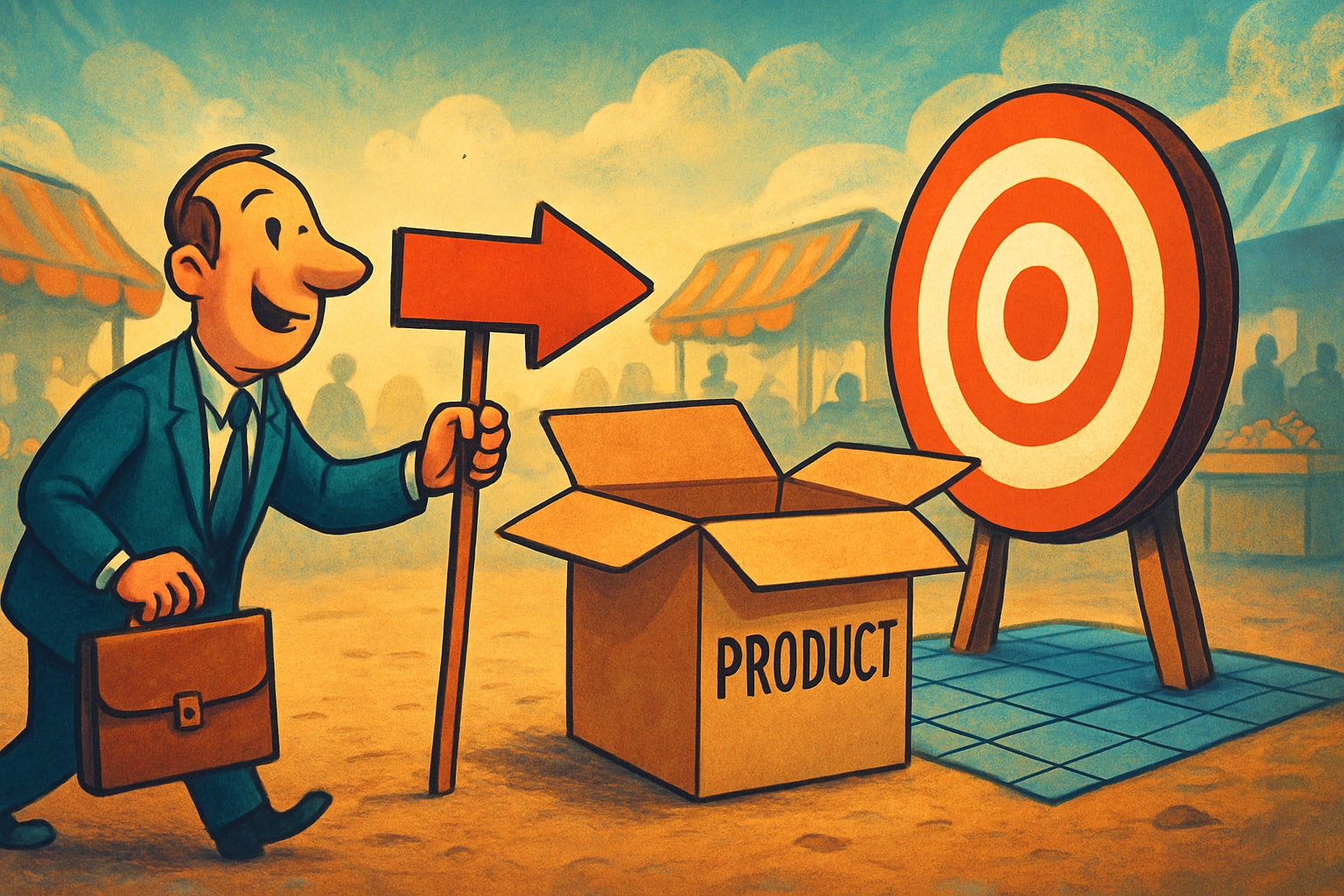
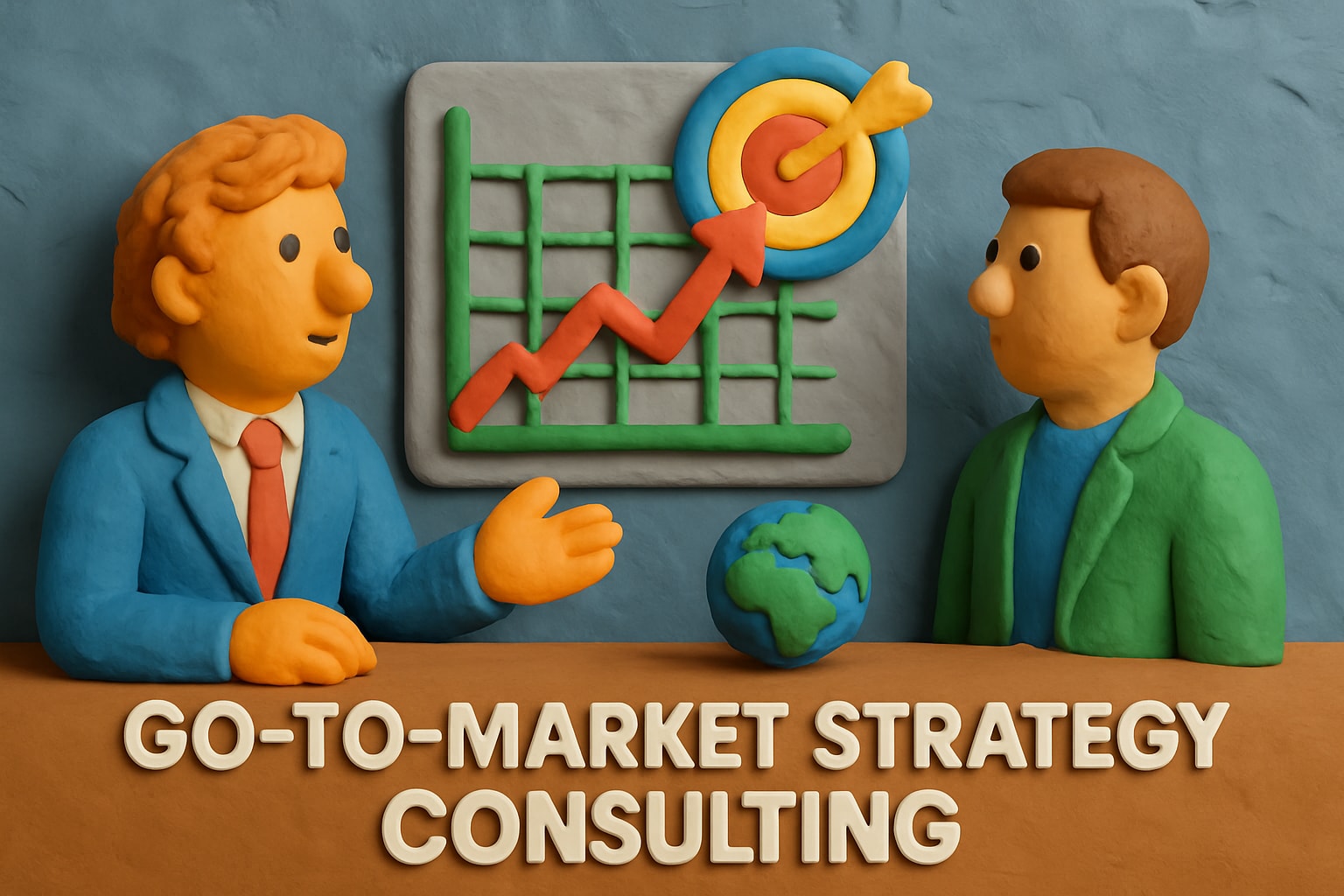
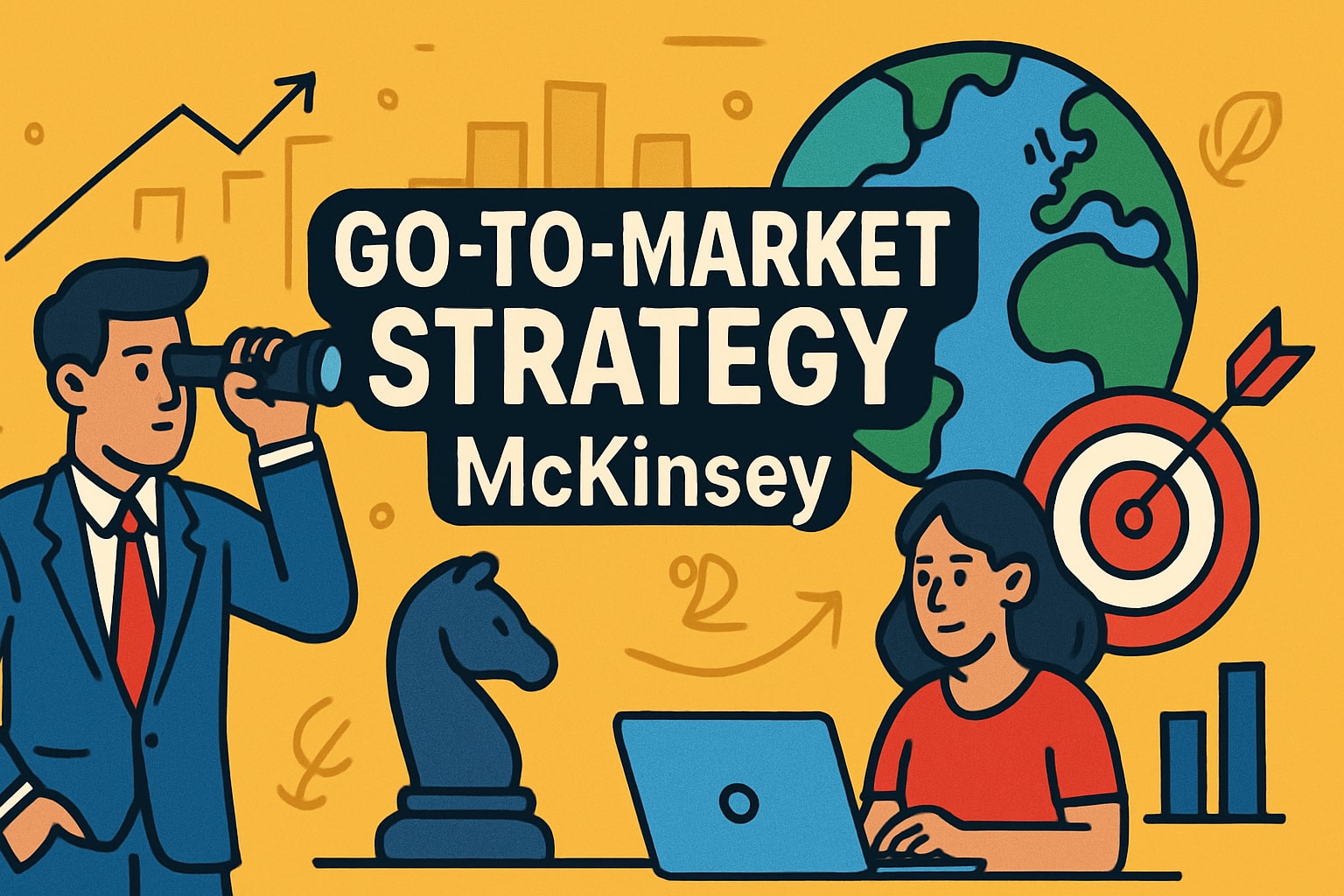
.jpg)